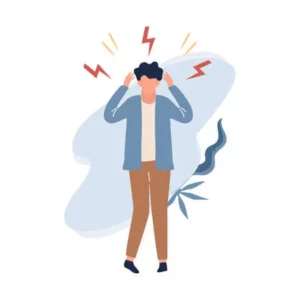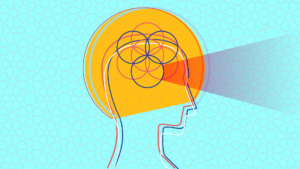Do you have a hard time controlling your temper? Do you find yourself yelling or screaming at people for no reason? If so, you may be suffering from an anger disorder. Anger disorders are very common, and they can cause a lot of problems in your life if left untreated. In this blog post, we will discuss the symptoms of anger disorders, as well as the treatments available. We hope that this information will help you get the help that you need!
Contents
- 1 What Is Anger Disorder?
- 2
- 3 Types of Anger
- 3.1 Assertive Anger
- 3.2 Aggressive Anger
- 3.3 Behavioral Anger
- 3.4 Cognitive Anger
- 3.5 Psychological Anger
- 3.6 Chronic Anger
- 3.7 Destructive Anger
- 3.8 Judgmental Anger
- 3.9 Overwhelmed Anger
- 3.10 Passive Aggressive Anger
- 3.11 Retaliatory Anger
- 3.12 Self Abusive Anger
- 3.13 Sudden Anger
- 3.14 Tantrum Anger
- 3.15 Threatening Anger
- 3.16 Verbal Anger
- 3.17 Volatile Anger
- 3.18 Silent Anger
- 4 Symptoms
- 5 What Causes Anger Disorder?
- 6 Diagnosis
- 7 Dealing With Anger Disorders
- 8 Conclusion
What Is Anger Disorder?
Anger disorder is a condition that is characterized by persistent and uncontrollable anger. Individuals who suffer from this condition may have a hard time controlling their temper, and they may lash out at others for no reason. This can cause problems in all areas of life such as work, school, and personal relationships. It has been estimated that up to 16% of the population suffers from some form of anger disorder. If left untreated, anger disorders can lead to problems in all areas of your life.
Although anger is a natural emotion, it can become problematic when it is out of control. If you find yourself struggling to control your anger, or if your anger is causing problems in your life, it is important to seek help. There are many treatment options available, and with the help of a qualified professional, you can learn how to manage your symptoms and live a happy, healthy life.

Types of Anger
Anger disorders are serious mental health problems that can cause significant problems in all areas of your life. They present themselves in various forms and types. Some of the most common ones have been discussed below.
Assertive Anger
This is the type of anger that allows you to express your feelings healthily. Assertive anger helps you to set boundaries and stand up for yourself. It may be expressed in words or actions, but it is always done in a way that is respectful of others. This type of anger is healthy and can be helpful in many situations.
Aggressive Anger
This is the type of anger that is characterized by violent or destructive behavior. Aggressive anger can lead to problems at work, school, and in personal relationships. This type of anger can also lead to legal problems.
Behavioral Anger
This is the type of anger that leads to passive-aggressive behavior. Behavioral anger is often characterized by sulking, procrastination, and withdrawal. Behaviors that influence anger can lead to problems in all areas of life.
Cognitive Anger
This is the type of anger that is characterized by negative thinking. Cognitive anger can lead to depression and anxiety. This type of anger can also make it difficult to focus and make decisions. It may be a consequent result of other disorders such as ADHD, PTSD, bipolar disorder, etc.
Psychological Anger
This is the type of anger that leads to anxiety, depression, and other mental health problems. Psychological anger can be very damaging to your overall health and well-being. This happens due to the stress and anxiety that it causes.
Chronic Anger
Chronic anger is a type of anger that lasts for long periods of time. This anger can lead to physical health problems, such as high blood pressure and heart disease. This anger accompanies other mental health disorders, such as anxiety and depression. It feels like a constant and ever-present feeling of low-laying but continuous feelings of anger.
Destructive Anger
Destructive anger is a type of anger that leads to self-destructive behaviors, such as substance abuse. Destruction in anger can also lead to problems in your personal relationships. It also contributes to a decrease in one’s self-worth.
Judgmental Anger
Judgmental anger is a type of anger that leads to you judging others harshly. This anger can cause problems in all areas of your life, including work, school, and personal relationships. This type of anger is often directed towards those who are different from you, such as people of other cultures or races.
Overwhelmed Anger
Overwhelmed anger is a type of anger that leads to you feeling overwhelmed by life. Overwhelming anger can cause anxiety, depression, and other mental health problems. This category of anger presents itself in different ways for different people. It persists and bubbles over when we feel like we’re not in control of a situation.
Passive Aggressive Anger
Passive-aggressive anger is a type of anger that is characterized by passive-aggressive behavior. This behavior includes sulking, procrastination, and withdrawal. It suppresses the expression of anger in an indirect way.
Retaliatory Anger
Retaliatory anger is a type of anger that leads to you retaliating against others. This anger can cause problems in all areas of your life, including work, school, and personal relationships. It follows a need of seeking revenge from someone who causes you harm.
Self Abusive Anger
Self-abusive anger is a type of anger that leads to you harming yourself. Abusive behavior for self includes cutting, burning, and other forms of self-harm. It can prove to be very damaging to your overall health and well-being.
Sudden Anger
Sudden anger is a type of anger that comes on suddenly and without warning. Outbursts of sudden anger can be very dangerous, as they can lead to impulsive behaviors. This outburst of anger can cause problems in all areas of your life.
Tantrum Anger
Tantrum anger is a type of anger that is characterized by tantrums or fits of rage. Tantrums can be very destructive. It includes yelling, throwing things, and becoming physically violent. This is mostly observed in children or adolescents but may persist into adulthood.
Threatening Anger
Threatening anger is a type of anger that is characterized by threats or intimidation. Behaviors that are threatening can include verbal threats, physical threats, and cyberbullying. This can prove to be very harmful to your overall health and well-being. It can also have severe impacts on people’s personal as well as professional relationships.
Verbal Anger
Verbal anger is a type of anger that is characterized by verbal outbursts. This type of anger can lead to problems in all areas of your life, including work, school, and personal relationships. It accompanies by yelling, name-calling, and swearing.
Volatile Anger
Volatile anger is a type of anger that is characterized by sudden outbursts. This category of anger can be very dangerous, as it can lead to impulsive behaviors. This type of anger can cause problems in all areas of your life.
Silent Anger
Silent anger is a type of anger that is characterized by feeling angry but not expressing it. People with this anger disorder tend to suppress and internalize their emotions. Silent anger can be very damaging to your health, as it can lead to anxiety, depression, and other mental health problems.
There are different types of anger disorders, and each one can be problematic in its own way. It has been estimated that up to 16% of the population suffers from some form of anger disorder. But they all share one common feature: difficulty controlling anger. If you have an anger disorder, you may find yourself getting angry over small things, lashing out at people close to you, or engaging in risky or destructive behaviors when you’re angry. Anger disorders can be very distressing and disruptive not only for the person but also for those around them.
Symptoms

There are many different symptoms of anger disorder. Some common signs include:
- Explosive outbursts of anger
- Problems controlling your temper
- Physical violence
- Verbal abuse
- Destruction of property
- Withdrawal from friends and family
- Yelling or screaming at others
- Physical violence (hitting, kicking, etc.)
- Throwing things or destroying property
- Saying hurtful things to others
- Making others feel scared or threatened
- Having a short temper
- Being easily annoyed or irritated
- Feeling like you always have to be on guard
It is important to note that the intensity, frequency as well as the severity of these symptoms may differ across different people. Not everyone will experience it in the same manner and it is essential to acknowledge these variations.
If you are experiencing any of these symptoms, it is important to seek professional help. Anger disorders can be very difficult to deal with on your own, and treatment can make a big difference. With the right help, you can learn how to control your anger and further lead a happy, productive life.
What Causes Anger Disorder?
There is no single cause of anger disorder.
Genetic factors
Some people may be more likely to develop an anger disorder if they have a family history of mental illness. This suggests that there may be a genetic component to these conditions.
Brain structure and function
Some research suggests that there may be a link between anger disorders and the way the brain processes information. This theory is further supported by the fact that people with certain types of brain damage often have problems with controlling their temper.
Environmental factors
Certain environmental factors, such as exposure to violence or trauma, may increase the risk of developing an anger disorder. Other factors involved with the environment that make people angry can also include toxic substances like lead. Various demographics show a higher risk of developing an anger disorder. For example, males are more likely to experience problems with anger than females. People who live in poverty or have unstable housing are also at a higher risk.
Psychological factors
Certain psychological factors, such as low self-esteem or anxiety, may contribute to the development of an anger disorder. Other factors include depression, stress, and substance abuse. People who have experienced trauma or abuse are also at a higher risk for developing an anger disorder.
Daily life stressors
It is also important to note that everyday stressors can trigger anger. This includes things like traffic, work demands, and family problems. It is important to learn how to deal with these stresses healthily so that they do not lead to anger problems. If someone is a student or working professional, the demands of your school or job may be a cause of underlying stress, which can further lead to anger. Other examples also include interpersonal things like feeling disrespected, feeling threatened, or feeling like you are not being listened to.
An individual may develop anger problems due to one or a combination of the above-mentioned factors. It becomes important to assess and reflect on the individual causes in order to get an idea of the extent of their emotions and deal with them most efficiently.
Diagnosis
A diagnosis of an anger disorder happens by a mental health professional after completing a comprehensive assessment. This assessment will include taking a detailed history of your symptoms as well as conducting a physical examination. If necessary, blood tests or imaging studies may also be a recommendation to rule out other potential causes of your symptoms.
The diagnostic criteria for an anger disorder will vary depending on the specific type of disorder. However, all types of disorders share certain common features. These include problems controlling your temper, feeling angry more often than not, and experiencing negative consequences as a result of your anger.
Dealing With Anger Disorders

Anger disorders are common but treatable. They can be managed either with the help of a mental health professional or by adopting self-coping strategies.
Treatment Options
Some common treatments for anger disorder include:
Psychotherapy
One of the most effective treatments for anger disorder is psychotherapy. This type of therapy can help people understand the root causes of their anger and develop healthy coping mechanisms. In some cases, family therapy is also a recommendation that addresses any underlying issues that may be contributing to the problem.
CBT
Cognitive-behavioral therapy (CBT) is another effective treatment for anger disorder. This type of therapy helps people to identify and change negative thought patterns that contribute to their problems. CBT can also teach people how to better manage stress and anger.
Medication
In severe cases, medication is a popular recommendation in addition to therapy. Medications such as antidepressants and anti-anxiety medication can help to control some of the symptoms of anger disorder.
Anger management classes
Another treatment option is to take an anger management class. These classes can teach you how to better deal with your emotions and manage your anger constructively manage your anger. They often use a combination of therapeutic concepts, self-help tools, and strategies.
Support groups can also be a helpful resource. In these groups, you can talk to other people who are dealing with similar issues and learn from their experiences. They also provide a sense of belonging, and external validation, and make an individual feel less alone in their recovery journey.
Self Help Tips
In addition to professional treatment, there are a few things that you can do to help manage your anger disorder. Some self-help tips include:
Exercise: Exercise can help reduce stress and tension, which can trigger episodes of anger. Physical activity also releases endorphins, the hormones associated with stress relief and well-being.
Be mindful: Pay attention to your thoughts and emotions, and try to be aware of the things that trigger your anger. This helps in self-reflection, accountability, and emotional regulation.
Practice self-care: Indulging in activities that you enjoy can evoke a sense of regained calmness and peace, which can help in reducing anger.
Stick to a routine: Having a set schedule can help you feel more in control of your life and less stressed. This eliminates the room for additional stress, which is also a significant factor behind anger.
Avoid triggers: If you know what triggers your anger, try to avoid those situations. If certain situations or people bring out the worst in you, it is best to avoid them so that you can minimize the occurrence of angry reactions.
Talk to someone you trust: Talking to a friend or family member about your anger can help you feel better and may prevent outbursts. This also evokes feelings of validation, acceptance, and positive regard.
Keep a journal: Writing down your thoughts and feelings can help you identify patterns in your anger. This also helps you to identify any patterns or repetitive tendencies in your behavior.
Spend time with positive people: Surrounding yourself with positive people can help you stay calm and happy.
Avoid drugs and alcohol: Drugs and alcohol can make symptoms worse, so it is important to avoid them.
Deep breathing: Taking deep breaths when you start to feel angry can help you calm down and avoid losing control. This contributes to calmer, more peaceful inner emotions and being in touch with your feelings.
If you think that you may have an anger disorder, it is important to seek professional help. With treatment, most people can manage their symptoms and lead happy productive lives. Don’t suffer from this condition any longer – get the help that you need!
Conclusion
In conclusion, anger disorders are common but manageable. If you think you may have an anger disorder, seek professional help. With treatment, most people can manage their symptoms and lead happy productive lives. Don’t suffer from this condition any longer – get the help that you need!
For more information, please contact MantraCare. Anger is a powerful emotion that is experienced by every individual at some point in their lives. If you have any queries regarding Online Anger Counseling experienced therapists at MantraCare can help: Book a trial Online therapy session


